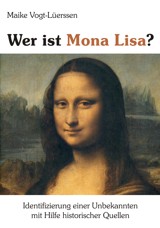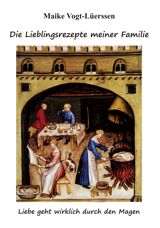Wer ist Mona Lisa? – Identifizierung einer Unbekannten mit Hilfe historischer Quellen
als Buch bei amazon.de: 172 Seiten, mit Stammtafeln und 136 Bildern (130 Bilder in Farbe), Independently published, 1. Auflage, ISBN 978-1-9831-3666-5, € 29,31




Foto mit der freundlichen Genehmigung von Ryan Dewkinandan

Wer ist Mona Lisa? – Identifizierung einer Unbekannten mit Hilfe historischer Quellen
als Buch bei amazon.de: 172 Seiten, mit Stammtafeln und 136 Bildern (130 Bilder in Farbe), Independently published, 1. Auflage, ISBN 978-1-9831-3666-5, € 29,31

Die Lieblingsrezepte meiner Familie – Liebe geht wirklich durch den Magen (3. Auflage)
bei amazon.de:126 Seiten mit farbigen und schwarz-weißen Bildern, Independently published, ISBN 979-8-7648-5958-3, € 13,28